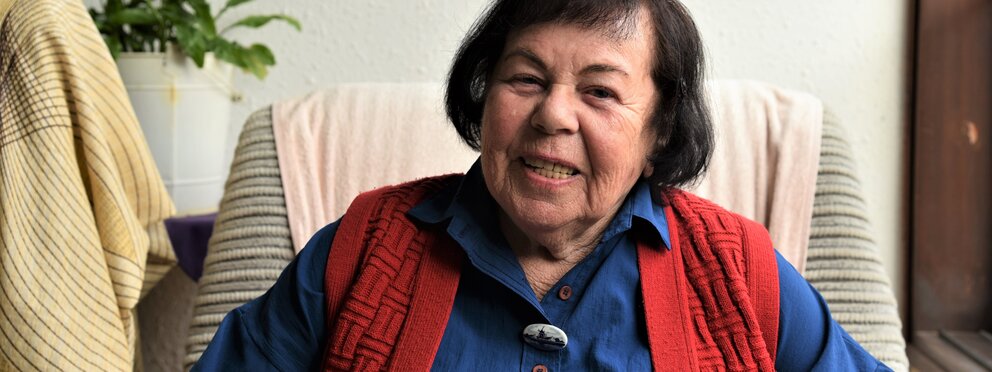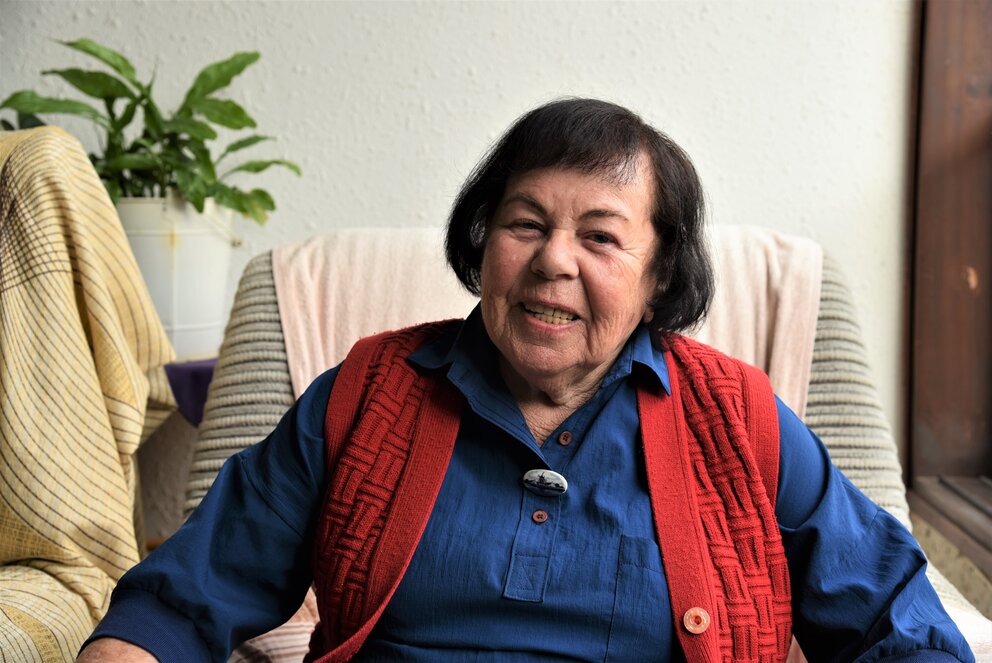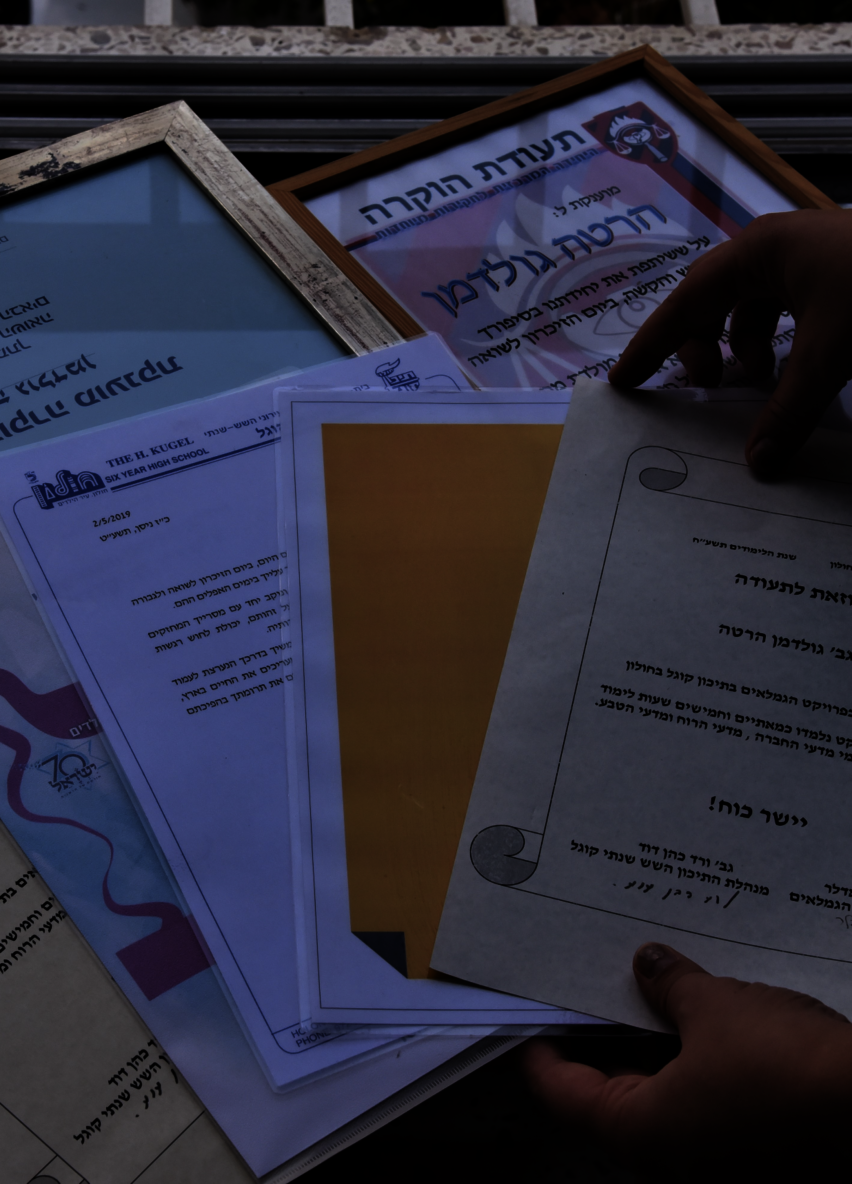
Herta Goldman
About Herta Goldman
Herta Goldman, née Thieberger, was born on 9 June 1928 in Zablatsch in Poland (today: Zabłocie). She lived there with her grandparents, parents and two brothers. Her parents ran a shop where Herta helped out and sold groceries and small goods. In 1939, the shop was confiscated by the National Socialists and the family was dispossessed. Herta was no longer allowed to go to school. Her father and two brothers were imprisoned and deported. Her grandmother and mother were deported to Auschwitz in 1941, Herta to the Bolkenhain labour camp. Herta had to do forced labour in the Merzdorf, Schönberg and Grünberg camps until the end of January 1945. On a death march on 4 February 1945, Herta attempted to escape with 35 other women, five of whom were shot while fleeing. She was able to save herself and hide from the National Socialists disguised as a Volksdeutsche until the end of the war. After the war, she found out that only her father had survived. The two only saw each other again for a short time before Herta emigrated to Israel, which her father was denied due to his declining health - he emigrated to the USA instead. Today, Herta Goldman lives in Holon, near Tel Aviv. She briefly met her future husband in Poland, they wrote letters and met again in Israel. He was also a survivor of the concentration camps. She was married to him for 64 years and has two children, four grandchildren and five great-grandchildren.
"It's not easy to live after the Holocaust. It is very difficult to live. [...] When I'm already in bed, I still ask why [...]. And nobody answers."

A picture to live on
The walls of Herta's flat are full of colourful certificates. The framed tributes come from groups who met Herta and heard her story. It is not easy for Herta to talk about her life story, but she does it again and again so that people understand what happened back then. She is very happy and proud of these written appreciations of her work. At the end of our meeting, we promised Herta that we would also send her a certificate by post stating that she had spoken to us. Of course, we honoured her wish.

Our encounter
During our visit to Israel in November 2019, Wiebke, Janika and I (from ZWEITZEUGEN e.V.) as well as Stela and Merle (from the association Kinder vom Bullenhuser Damm e.V.) were able to meet and get to know Herta Goldman. The interview was made possible by Georg Liebich-Eisele, with whom we have been in contact for years due to his travels to Israel.
Herta Goldman began to talk about her life even before the organisational issues were clarified. Herta described her carefree childhood in the small town of Zablatsch near Schwarzwasser, where her parents ran a shop that was taken from them after the occupation.
She recounted the traumatic events that followed - stays in various camps, forced labour, the murder of her mother, grandmother and brothers and the death march - with great emotion and tears. In the winter of 1945, she was able to escape the death march in the small town of Gassen, now Poland, and thus survive. It was an almost unbelievable story that the camp leader in Bolkenhain ensured that Herta's injury was treated by a doctor outside the camp so that she did not die of blood poisoning.
We particularly remember the wonderfully catchy Yiddish intonation in which Herta spoke as a Jew born in Silesia. We sat together with fresh mango, coffee and cake and were able to experience a very lively, cheerful 91-year-old lady, who explained to us with a smile that she was of course on Facebook: "Old as a cow, but still learning." We were also impressed by the fact that Herta only recently finished high school and watches online lectures from Israeli universities every day. She is particularly interested in agriculture and technical innovations in Israel. Herta is proudly Israeli and it is important to her that she was a soldier. She showed us the many certificates she received for telling her story. We will continue to tell her moving story.
Author: "Zweitzeuge" Björn Helpap
